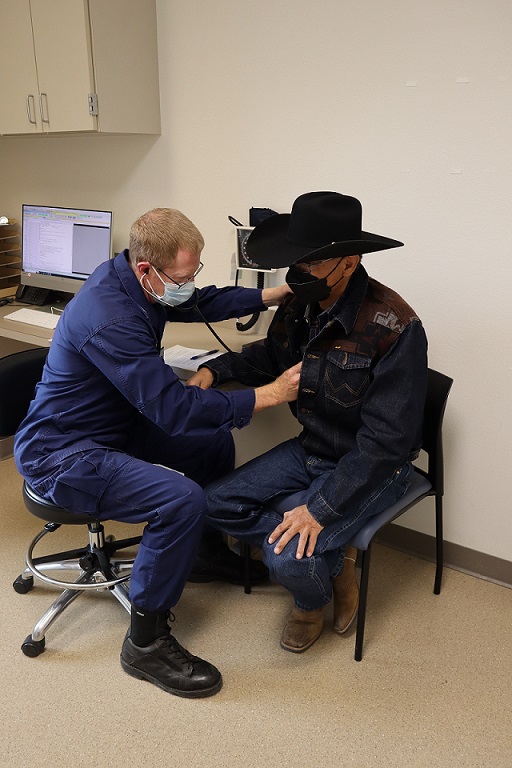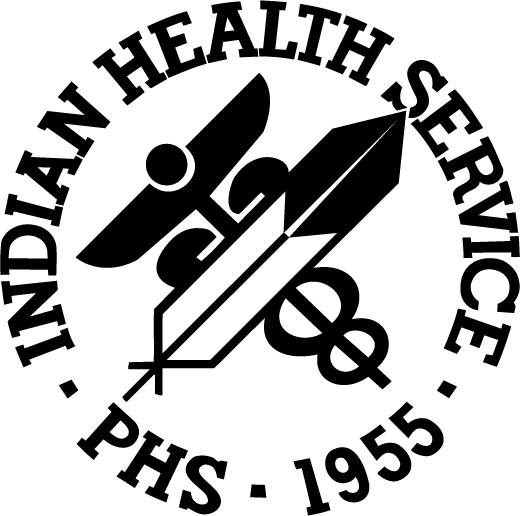During Men’s Health Month in June, team members from the IHS Division of Clinical and Community Services Dion Reid, Andrew Yu, Alberta Becenti and Michelle Archuleta are collaborating to highlight the topic of cancer and the role of stigma. Even though no one deserves a cancer diagnosis, some patients feel stigmatized upon hearing the news, especially if the cancer is affecting parts of the body that are uncomfortable to talk about. Numerous cancers that affect men include testicular, colorectal, prostate and penile cancers, as well as cancers linked to the human papillomavirus, such as oral and anal cancer.
Aside from skin cancer, prostate cancer remains the most common cancer among men, followed by lung and colorectal cancer. Roughly one in eight men will be diagnosed with prostate cancer during their lifetime. The American Cancer Society recommends that men at average risk for colorectal cancer should start regular screening at age 45.
Stigma can result in care avoidance, isolation and feelings of shame, which lower life quality and worsen health outcomes. It can also result in emotional stress and a detrimental effect on mental health. Men who experience stigma may put off getting regular check-ups and seeking care for cancer-related symptoms. Men frequently feel more uncomfortable discussing their concerns out loud when seeking care, which may prevent patients from receiving necessary screening and treatment in a timely manner.
Kevin Gaines, M.D., chief medical officer with the Navajo Area Indian Health Service, has worked extensively with patients with cancer diagnoses and shares his perspectives on how to provide care and destigmatize cancer as part of raising awareness with men's health. We sat down with Dr. Gaines to add a provider’s outlook on the following topic areas:

IHS Navajo Area Chief Medical Officer Dr. Kevin Gaines examining a patient
Case management:
Various clinicians and experts collaborate to create a care plan following a cancer diagnosis. The patient's emotional health is considered in addition to biomedical interventions. Depending on the severity of disease, this may include a primary care physician, an oncologist, additional specialists, social work, nursing and nutrition.
What role does case management play in taking care of people with cancer?
Coordinating a patient's care across all of their providers is made possible by case management. Often, patients receive radiology and laboratory tests from various locations while seeing two or three doctors. Care coordination, communication and patient-centered care are all synchronized by effective case management. Case management can also address stigma by designing interventions emphasizing social support and coping mechanisms.
Family and support systems:
Providing good, compassionate care to cancer patients is not a simple algorithm. Providing compassionate and quality care is best done by incorporating the patient’s family and support resources into their visits.
What role do family and support systems play?
Upon receiving the news of a cancer diagnosis, having a good support system during treatment can be helpful, especially for both the patient and caregiver. Peer support, or people who have had similar experiences with cancer, is another means to reinforce emotional wellness and positive outlooks on care.
Community role:
A cancer diagnosis can be a stressful and overwhelming experience, but community support can provide emotional and practical assistance to those facing this challenge.
How can community support help improve cancer outcomes?
Community members can raise awareness about the importance of cancer screening and early detection, advocate for policy changes related to cancer prevention and treatment, and provide resources such as transportation, financial assistance and access to health care.
Mental health:
The discovery that one has cancer can result in anxiety, depression, fear and future uncertainty. Additionally, the physical changes brought on by cancer treatment, such as hair loss, fatigue, and weight changes, can impact one's self-esteem and body image.
What are some best practices to help manage mental health?
Joining a support group, practicing relaxation techniques, leading a healthy lifestyle and getting professional counseling or therapy are some of the best ways to manage mental health. Sharing your feelings with loved ones can help you feel less stressed and anxious after a cancer diagnosis.
Conclusion:
With proper support and self-care, individuals can cope with the challenges of a cancer diagnosis and treatment and maintain a positive outlook on their future. Individuals must seek support from family, friends and mental health professionals to help cope with these challenges. It is essential to break down the stigma surrounding men’s health and cancer by promoting early detection and treatment. Raising awareness and addressing the stigma surrounding men’s health and cancer can improve health outcomes and save lives.
What you can do to help reduce your cancer risk:
- Stay away from tobacco.
- Get to and stay at a healthy weight.
- Get moving with regular physical activity.
- Follow a healthy eating pattern that includes plenty of fruits, vegetables, and whole grains, and that limits or avoids red/processed meats, and highly processed foods.
- It’s best not to drink alcohol. If you do drink, have no more than two drinks per day.
- Protect your skin.
- Know yourself, your family history, and your risks.
- Get regular check-ups and cancer screening tests.
Related Content:



